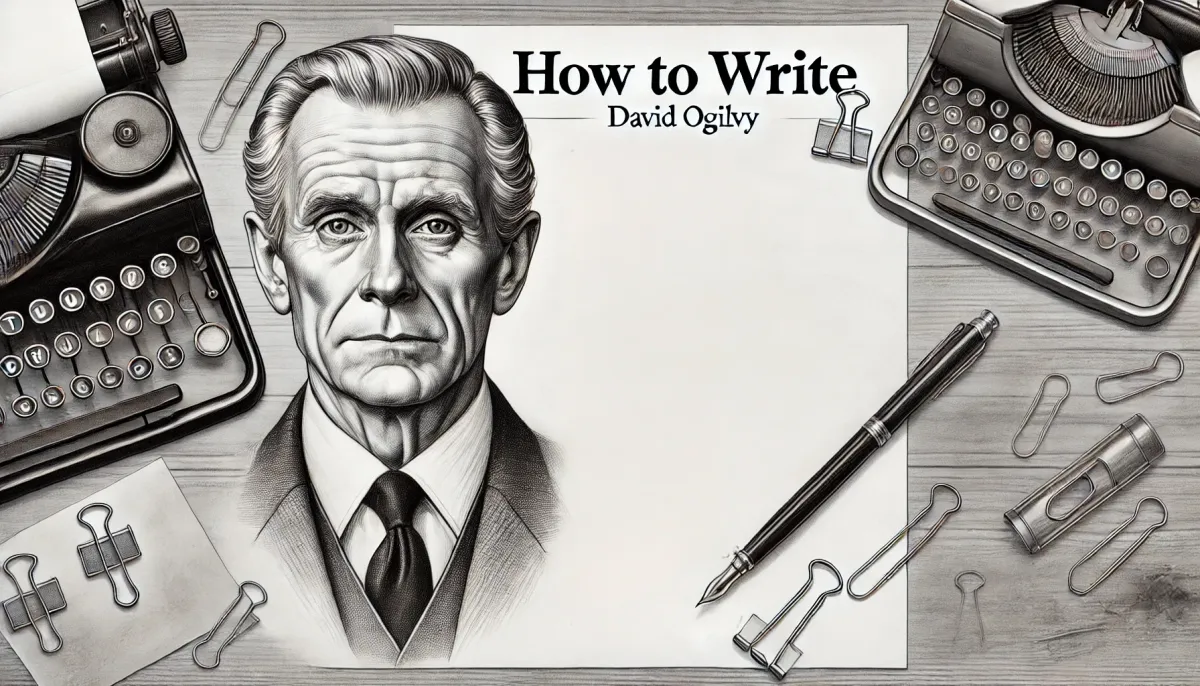Ogilvy's Guide to Writing
10 rules on writing by David Ogilvy, the father of advertising.

Nowadays, people regularly interact with written text. For example, right now, you're engaging with this one. Some of us even write text regularly, especially those folks who run blogs.
Today's list from David Ogilvy, the father of advertising, cannot be fully attributed to those “contemplation lists” that appear on this blog at the end of the week. A curious reader will find quite practical things in it.
Moreover, David unexpectedly pleased me with his serious attitude towards lists. In his book “The Unpublished David Ogilvy” [1] there is an entire chapter dedicated to them.
So, here's the list [1]:
I discovered this list in the “Lists of Note” book [2]. However, I want to point out that this blog does not practice simple reprints, and its author always tries to find a little more for his readers than they can find in the original source. That's why, in this post, you learned that Ogilvy loved lists. This fact didn’t appear on the pages of the “Lists of Note”. Moreover, the first sentence about 14 directors is not there either:
September 7, 1982
HOW TO WRITE
If everybody in our company took an exam in writing, the highest marks would go to the 14 Directors.
The better you write, the higher you go in Ogilvy & Mather. People who think well, write well.
Woolly minded people write woolly memos, woolly letters and woolly speeches.
Good writing is not a natural gift. You have to leam to write well. Here are 10 hints:
(1) Read the Roman-Raphaelson book on writing.* Read it three times.
(2) Write the way you talk. Naturally.
(3) Use short words, short sentences and short paragraphs.
(4) Never use jargon words like reconceptualize, demassification, attitudinally, judgmentally. They are hallmarks of a pretentious ass.
(5) Never write more than two pages on any subject.
(6) Check your quotations.
(7) Never send a letter or a memo on the day you write it. Read it aloud the next morning-and then edit it.
(8) If it is something important, get a colleague to improve it.
(9) Before you send your letter or your memo, make sure it is crystal clear what you want the recipient to do.
(10) If you want ACTION, don't write. Go and tell the guy what you want.
As a reader, do you think the author of this blog has managed to adhere to at least some of the points from the mentioned list?
* Refers to the book “Writing That Works” [3] by Kenneth Roman and Joel Raphaelson. These are not random people with a successful book on writing; both were, at the time, high-ranking employees of the Ogilvy & Mather advertising agency. By the way, the third edition of the book was published in 2010.
List of links:
[1] David Ogilvy, The Unpublished David Ogilvy, ISBN 0-283-99850-4
[2] Shaun Usher “Lists of Note: An Eclectic Collection Deserving of a Wider Audience”, ISBN 978-1452144573
[3] Kenneth Roman and Joel Raphaelson, Writing That Works, ISBN 0-06-014843-8



